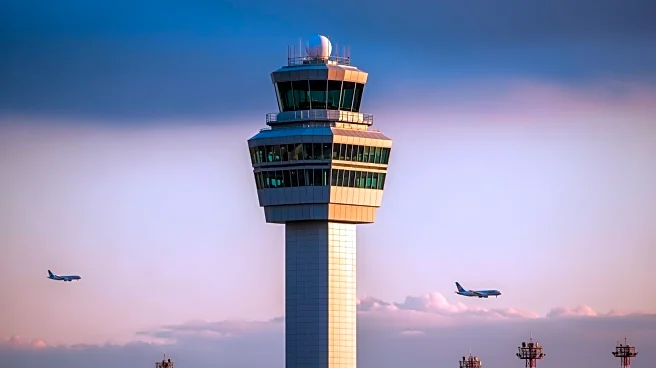What's Happening?
Transportation Secretary Sean Duffy has faced media skepticism over his decision to reduce flights due to air traffic control issues. The New York Times reported on Duffy's actions, suggesting political
motivations to pressure Democrats during the government shutdown. Despite criticism, Duffy's decision was supported by National Transportation Safety Board Chair Jennifer Homendy, who agreed that flight reductions were necessary for safety. The Federal Aviation Administration reported significant controller absences, prompting Duffy's actions to prevent potential accidents. The media's distrust of the Trump administration has influenced perceptions of Duffy's decision.
Why It's Important?
Duffy's decision to cut flights highlights the intersection of politics and public safety in transportation policy. The move underscores the challenges faced by government officials in balancing political pressures with safety concerns. Duffy's actions have implications for airline operations and passenger safety, affecting travel plans and industry dynamics. The media's skepticism reflects broader distrust of the Trump administration, influencing public perceptions of government decisions. Duffy's approach to managing air traffic control issues may set a precedent for future transportation policies during political crises.
What's Next?
As the government shutdown continues, Duffy's decision may prompt further scrutiny from political leaders and media outlets. The transportation sector will need to adapt to flight reductions, potentially affecting airline schedules and passenger experiences. Duffy's actions may lead to discussions on improving air traffic control systems and addressing workforce challenges. Political leaders may respond to Duffy's decision by advocating for government reopening and addressing underlying issues. The situation will evolve as stakeholders assess the impact of flight reductions and explore solutions to prevent future disruptions.
Beyond the Headlines
Duffy's decision raises questions about the role of political motivations in public safety decisions. The media's skepticism highlights the importance of transparency and accountability in government actions. Duffy's approach may influence future transportation policies, emphasizing the need for safety over political considerations. The situation underscores the complexities of managing public services during political crises, prompting discussions on effective governance and crisis management. Duffy's actions may also impact perceptions of the Trump administration's handling of transportation issues.









